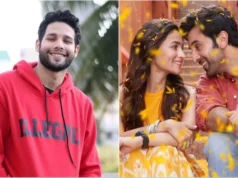
Head of India’s Government is the Prime Minister. He makes recommendations to the President for the appointment of many officials and also presides over meetings of the Council of Ministers.
A Prime minister may be the leader of a political party with a majority in the Lok Sabha or he can win the confidence of other parties. If no majority party is present, the President may appoint the Prime minister at his discretion.
1. Narendra Modi
Table of Contents
Narendra Modi is a renowned Indian politician and a senior leader of the Bharatiya Janata Party. He led his party to a sweeping victory in the 2014 elections and was sworn in as India’s 14th prime minister in 2014.
He is widely known for his efforts to improve India’s economy, and the country has been benefiting from his policies. He has launched many programs to address economic and social issues, including the UDAN regional connectivity scheme.
His efforts to improve India’s relationships with other countries are also creditable. On official visits, he has been to Israel, Palestine and other countries.
2. Sharad Pawar
Sharad Pawar, one of India’s most experienced politicians has been involved in politics for over five decades. A former chief minister in Maharashtra, he is also a Rajya Sabha Member of the NCP.
Having contested the 1998 National Parliamentary election, he served as president of the NCP in 2009 and was also the ICC president from 2010 to 2012. He was one of the leading contenders for the post of Prime Minister.
He resigned from the Congress party in 1999 and formed the NCP, which became a major player in Indian politics.
Maharashtra is the NCP’s main base, and Pawar has been leading the party since 1999. He is a well-known face in the Indian media and has won many state elections.
Pawar attacked NarendraModi in a recent speech at NCP convention, Shirdi. He said the prime minister does not have a vision for inclusive development, nor is he open-minded.
3. Arun Jaitley
Arun Jaitley, a leader of the Bharatiya Janata Party in India (BJP) was the Finance Minister for India between 2014 and 2019. He held several cabinet portfolios including finance, defense, information and broadcasting, corporate affairs, and law and justice.
Major economic legislation was passed by him, including the national goods and services tax. This had been stalled for almost two decades. Modi’s purchase of Rafale fighter planes was also supported by him.
When Modi took office in 2014, he gave him three ministries: finance, defense and information and broadcasting. He was the chief spokesperson and troubleshooter for each ministry.
A skilled strategist, he was trusted advisor to the Prime Minister. He helped him frame the 2019 election as a contest between stability and chaos, as well as explain complex issues such as the rising cost of fuel and the Rafale fighter jet deal in plain English. He also played a key role in the party’s campaign strategy.
4. Sharad Tharoor
Tharoor, a former diplomat from international settings was born in London but educated in America. He served as the Under-Secretary-General for Communications and Public Information at the United Nations under Kofi Annan.
A member of the Kerala parliament, he is also an author. His writings on recent Indian economic reform and its future prospects, as well as globalisation and human rights are widely read.
However, his weakness is the tendency to attract controversy from a high society. It is a habit that politicians with half the ability of him and greater awareness of Indian voters avoid.
In 2009, he fought for elections and won a seat at the Kerala assembly’s southern section. Manmohan Singh elected him as an UPA member.













































